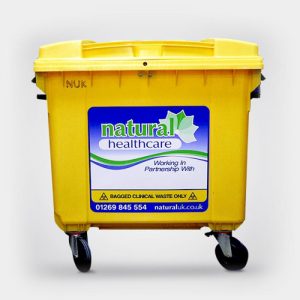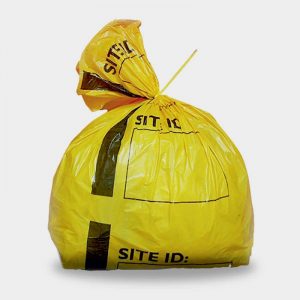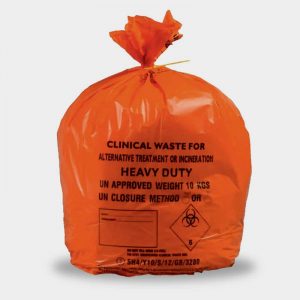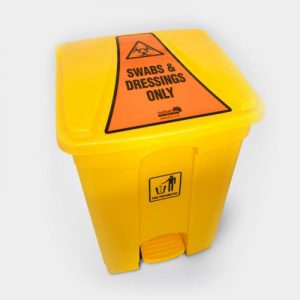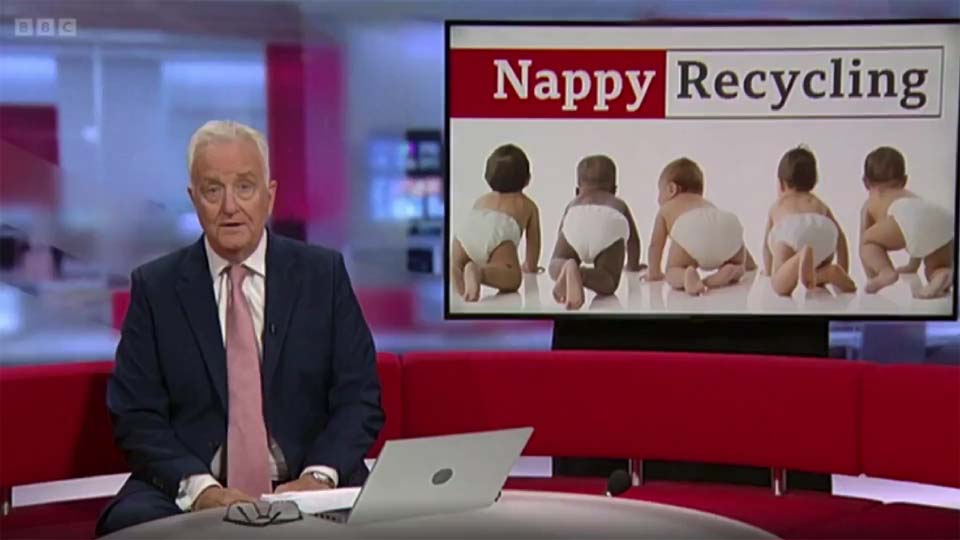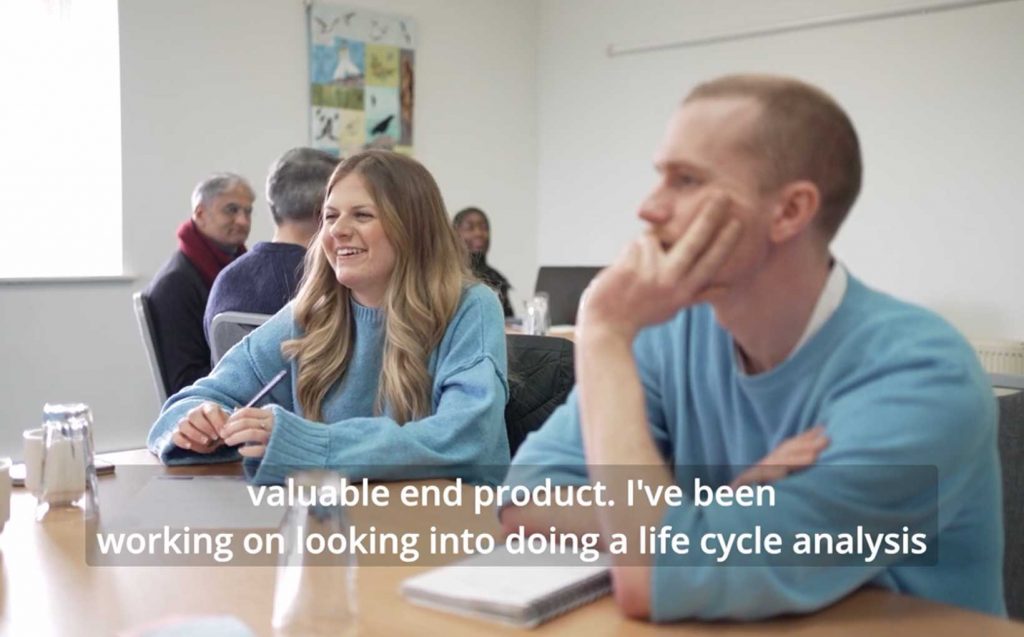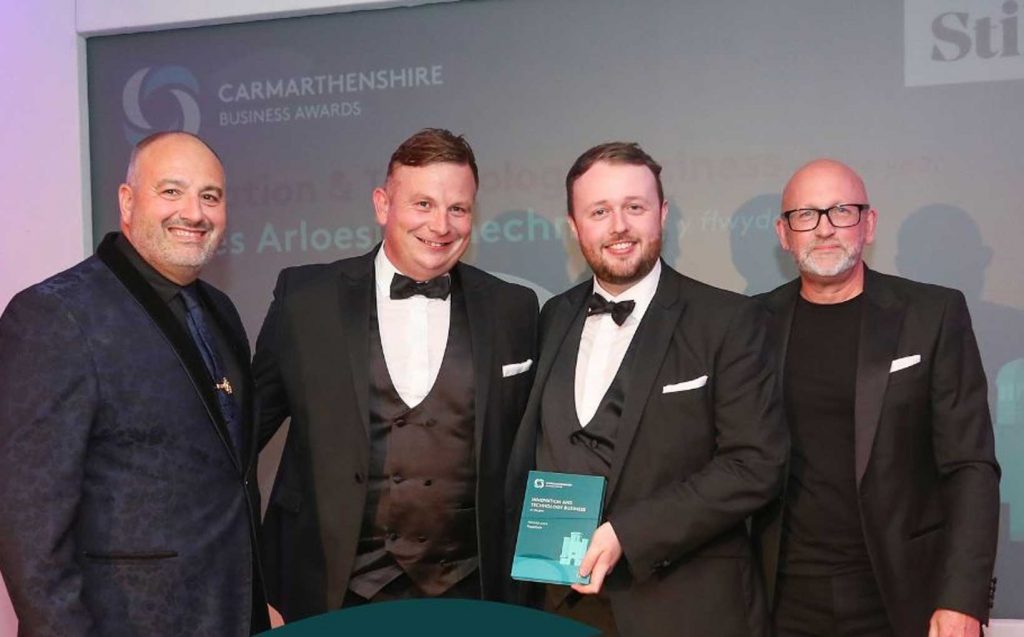For Optometry and Audiology in Wales
Are you compliant?
Welsh Government’s proposed reform for the provision of, and improved access to, ophthalmic services through the expansion of eye care services delivered on the high street by optometrists will result in an increase in clinical healthcare waste being produced at these sites. The proposals are summarised In NHS Wales’ document ‘NHS Wales Eye Health Care – Future Approach for Optometry Services’.
Optometrists are classified as producers of healthcare waste and as such they are subject to the requirements of the Welsh Health Technical Memorandum (WHIM) 07-01 in Wales, and the Health Technical Memorandum (HTM) 07-01 in England. As Hazardous waste is generated in optometry, opticians are also subject to the Hazardous Waste (England and Wales) Regulations 2005.

This information page seeks to provide an overview of the waste types and the associated packaging and segregation requirements for optometry waste in line with UK Guidance and Legislation. Waste generated from audiologists is also considered on this page.
In addition to proper segregation and packaging, waste. Pre-Acceptance Audits are a legal requirement for collections of healthcare waste for treatment or disposal by a permitted facility. Audits demonstrate compliance with regulations for both the waste producer (opticians) and the waste management contractor and provide documented evidence that Duty of Care has been met.
Offensive Hygiene Waste (Non-Hazardous)
Generated from Optometry
Offensive hygiene waste in a health care setting, such as an opticians, comprises waste that is non-clinical, non-infectious and does not contain pharmaceutical or chemical substances. This waste stream is classified under the European Waste Category (EWC) Code 18 01 04
In an opticians premises, this waste stream can include the following which could be contaminated with bodily fluid where the patient is deemed non-infectious:
- PPE (such as disposable gloves, masks, aprons etc.)
- Dressings or cotton pads etc.
- Disposable tonometry heads (such as tonometer heads, tonopen sheaths, iCare probes, PVA spears)
- Contact lenses
Infectious Clinical Waste (Hazardous)
Generated from Optometry
Clinical waste in a health care setting, such as an opticians, that Is classified as infectious and hazardous in nature and does not contain chemical or medicinal contamination. This waste stream is classified under the European Waste Category (EWE) Code 18 01*
In an opticians premises, this waste stream can include the following which could be contaminated with bodily fluid where the patient is deemed to be infectious:
- PPE (such as disposable gloves, masks, aprons etc.)
- Dressings or cotton pads etc.
- Disposable tonometry heads (such as tonometer heads, tonopen sheaths, iCare probes, PVA spears)
- Contact lenses
Clinical Waste
Generated from Audiology
Clinical waste generated from audiology would comprise of hazardous infectious clinical waste which would be classified under EWC code 18 01 Or and must be disposed of in an orange bag.
Non-hazardous offensive hygiene waste generated from audiology would be classified as EWC code 18 01 04 and must be disposed of in a Tiger Bag.
These waste streams could consist of the following and the waste classification would depend on whether the patient is deemed to be, or suspected of being, infectious:
- PPE (such as disposable gloves, masks, aprons etc.
- Swabs, cotton pads, tissue etc.
- Moscone disposable tips
- Ear moulds used for fitting hearing aids
- Disposable ear tips for water irrigation systems
Audiology is highly unlikely to generate sharps as ear curettes and small scoops used for ear cleaning and was removal are metal and are sterilised and re-used. Additionally, audiologists do not prescribe medication and would suggest over the counter drops etc. Therefore it is unlikely that medicinal / pharmaceutical waste would be generated at these practices. In the event that sharps or pharmaceutical waste was generated, the segregation and packaging practices outlined within the ‘Clinical Waste and Rigid Containers’ section of this information pack would apply.
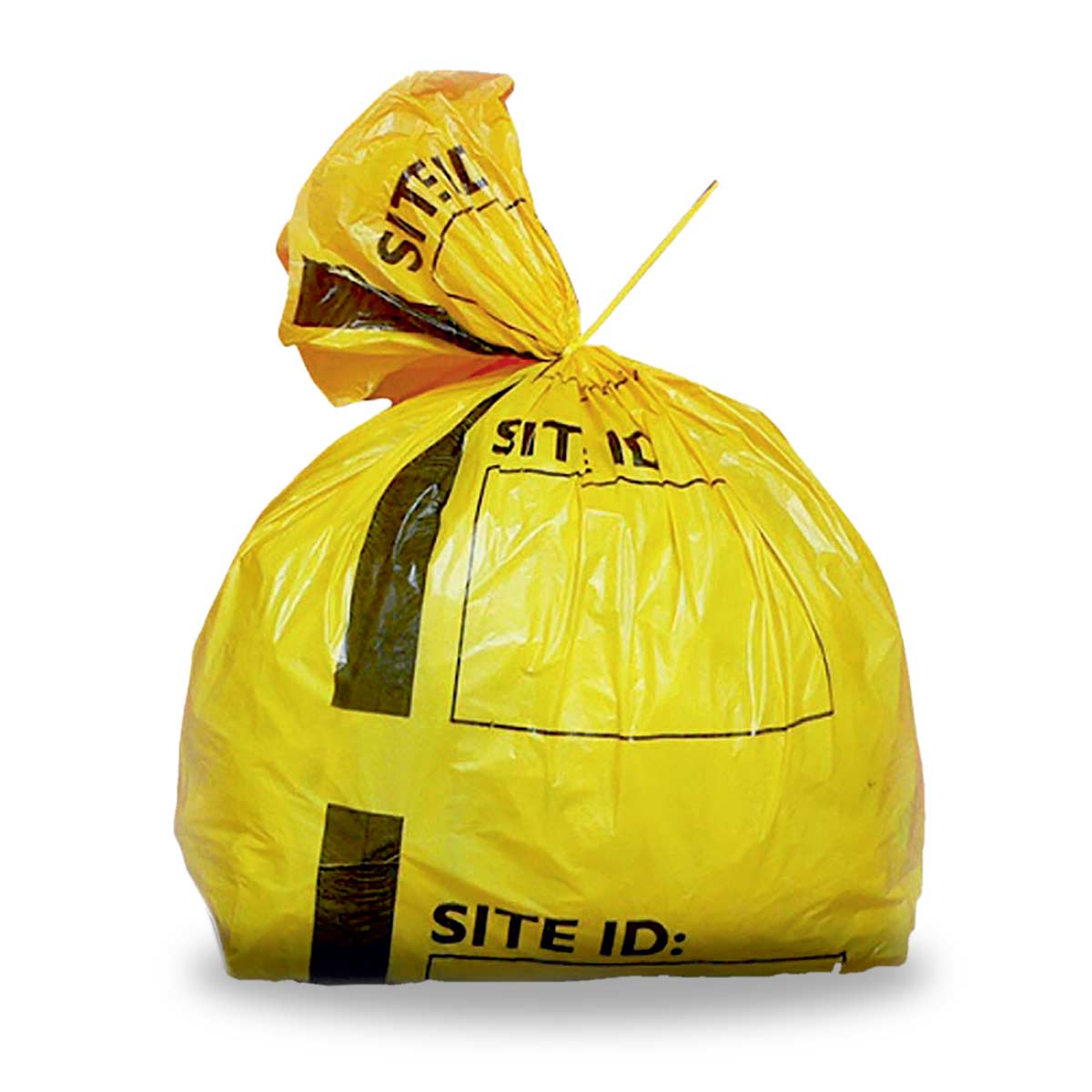
Non-Hazardous waste must be placed in yellow bags with a black stripe, known as ‘Tiger Bags’. This waste can be disposed of via landfill, energy from waste and other authorised disposal or recovery, in line with the WHTM 07-01.
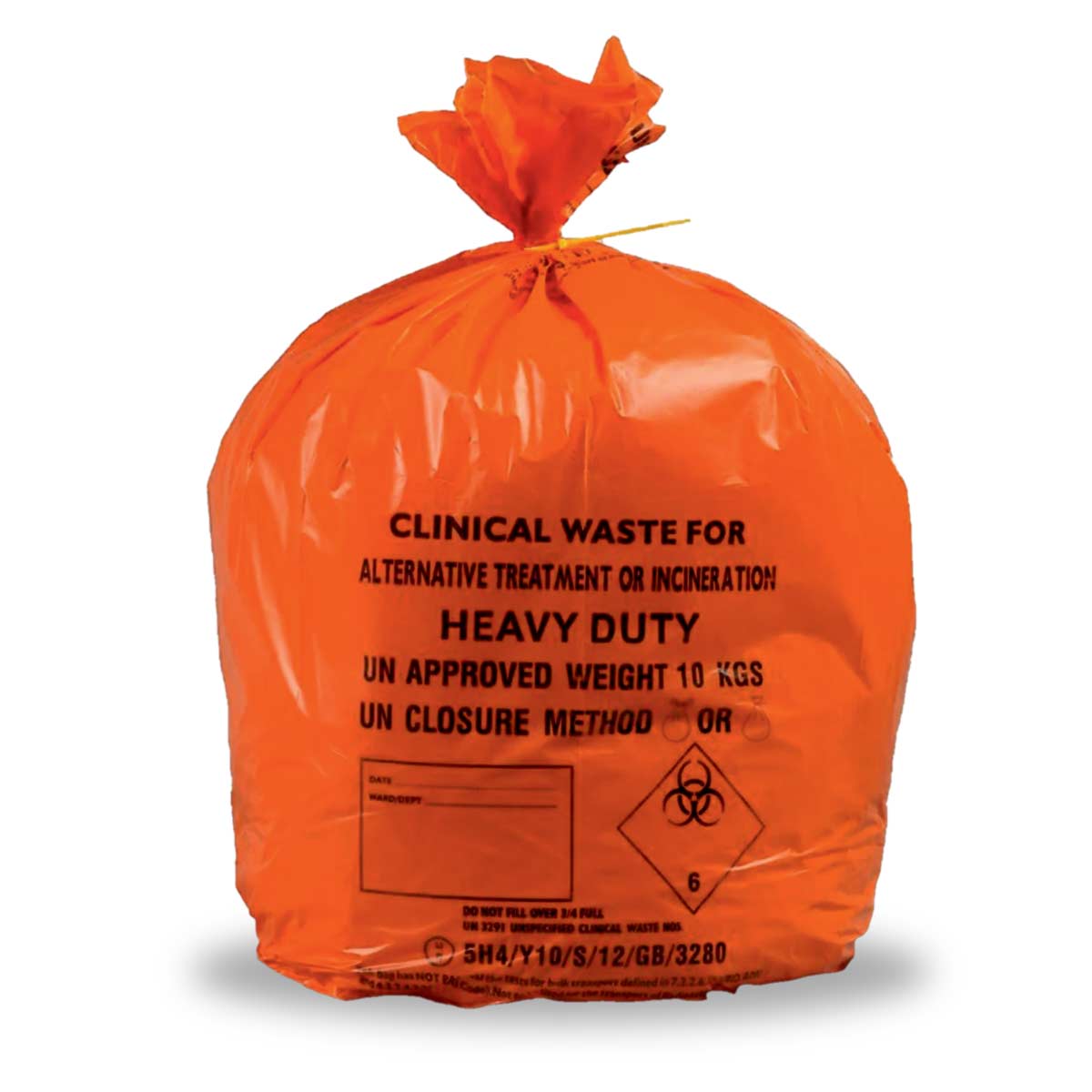
Hazardous waste must be placed in orange bags. This waste can be disposed of via alternative treatment or clinical waste incineration in line with WHTM 07-01.
Clinical Waste and Rigid Containers
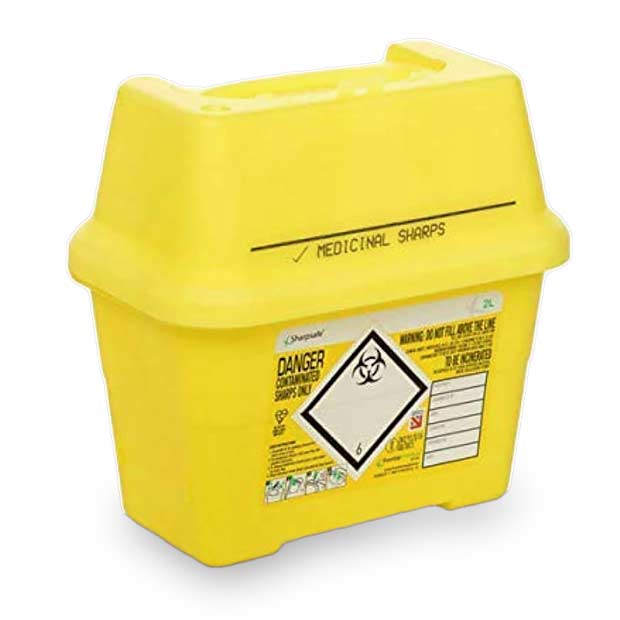
Sharps Hazardous
Clinical infectious and pharmaceutically contaminated wastes (non-cytotoxic and non-cytostatic), such as sharps, are required to be disposed of in yellow lidded sharps boxes. This could include sharps used for removing corneal foreign bodies. This waste stream is classified under EWC code 18 01 Or and EWC 18 01 09 and must be disposed of via clinical waste incineration, in line with WHTM 07-01.
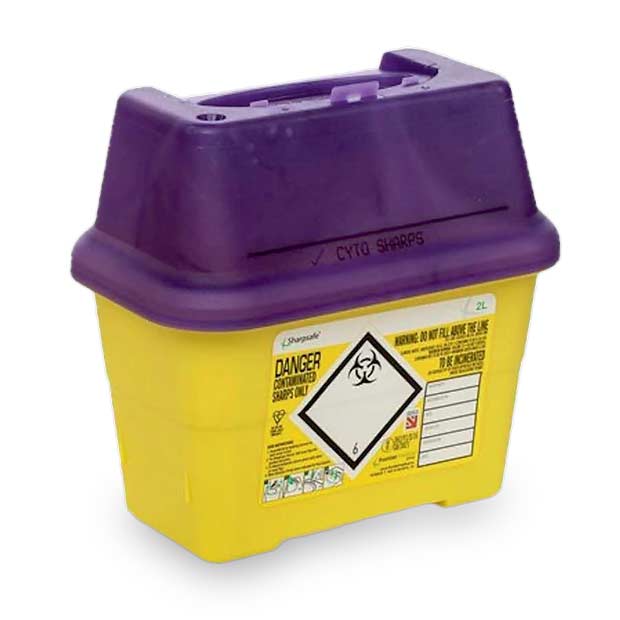
Cytotoxic Hazardous
Clinical infectious waste that is medicinally contaminated with cytotoxic and cytostatic chemicals must be disposed of in purple lidded containers. This could comprise of chloramphenicol used to treat eye infections, which is cytotoxic. This waste stream is classified as 18 01 OP and 18 01 08* and must be disposed of via clinical waste incineration, in line with WHTM 07-01
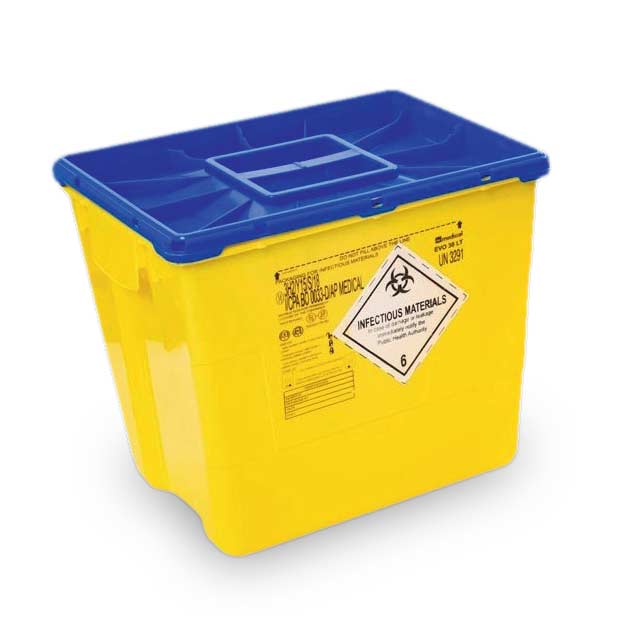
Pharmaceutical Non-Hazardous
Clinical pharmaceutical/medicinal waste (non-cytotoxic and non-cytostatic) must be disposed of in blue-lidded containers.This could comprise out of date minims (such as dilation drops, anaesthetic drops, irrigating solutions etc.) and fluorets (such as fluorescein strips/dyes). This waste stream is classified under EWC 18 01 09 and must be disposed of via clinical waste incineration, in line with WHTM 07-01. It should be noted that empty plastic saline solution pods or empty contact lens plastic bottles can be recycled with other plastic waste.
Contact Us
For more information about our services, call us on 01269 845 554 or contact us…
CONTACT US

